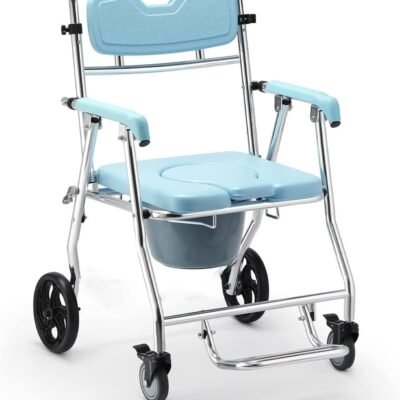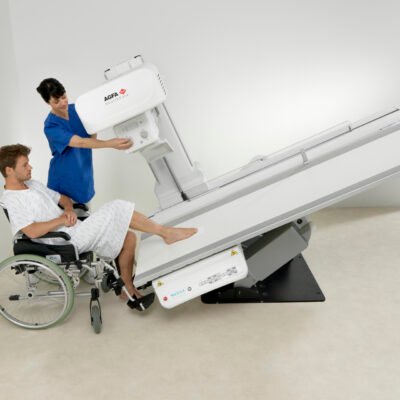Introduction
Attention Deficit Hyperactivity Disorder (ADHD) is a neurodevelopmental disorder that affects individuals of all ages. ADHD can have a significant impact on an individual’s relationships, particularly in romantic partnerships. The use of medication to manage ADHD symptoms can be a helpful tool in navigating neurodiverse relationships. In this article, we will explore the use of ADHD medication in neurodiverse relationships.
ADHD and Relationships
ADHD can affect relationships in several ways. Symptoms of ADHD, such as inattention, hyperactivity, and impulsivity, can make it difficult for individuals to focus on their partner, engage in effective communication, and regulate their emotions. This can lead to misunderstandings, conflict, and emotional distress.
Additionally, individuals with ADHD may struggle with organization, time management, and completing tasks, which can lead to stress and frustration for both partners. These challenges can impact the overall quality of the relationship and lead to feelings of dissatisfaction and disconnection.
The Use of ADHD Medication in Neurodiverse Relationships
ADHD medication, such as stimulants and non-stimulants, can be an effective tool in managing ADHD symptoms and improving relationship functioning. Medication can help individuals with ADHD improve their ability to focus, regulate their emotions, and manage their time and tasks effectively. This can lead to improved communication, reduced conflict, and increased emotional intimacy in neurodiverse relationships.
Benefits of ADHD Medication in Neurodiverse Relationships
The use of ADHD medication in neurodiverse relationships can provide several benefits. These include:
- Improved communication: ADHD medication can improve an individual’s ability to focus and regulate their emotions, which can lead to more effective communication with their partner.
- Reduced conflict: ADHD medication can help individuals with ADHD manage their impulsivity and emotional reactivity, reducing the likelihood of conflict in the relationship.
- Improved time management: ADHD medication can help individuals with ADHD manage their time and tasks effectively, reducing stress and frustration for both partners.
- Increased emotional intimacy: By improving communication and reducing conflict, ADHD medication can lead to increased emotional intimacy in neurodiverse relationships.
Challenges of ADHD Medication in Neurodiverse Relationships
While ADHD medication can be beneficial in managing ADHD symptoms in neurodiverse relationships, there are also potential challenges that should be considered. These include:
- Adverse effects: ADHD medication can have side effects such as insomnia, decreased appetite, and increased heart rate and blood pressure. These side effects may be more pronounced in individuals with pre-existing medical conditions.
- Stigma: There may be social stigma associated with taking medication for ADHD, which can lead to feelings of shame or embarrassment.
- Cost: ADHD medication can be expensive, and not all insurance plans cover the cost of medication.
- Individual preferences: Not all individuals with ADHD may wish to take medication, and it is important to respect individual preferences and choices.
Managing ADHD Medication in Neurodiverse Relationships
To effectively manage ADHD medication in neurodiverse relationships, it is important to take several factors into account. These include:
- Open communication: Partners should engage in open and honest communication about the use of medication and potential benefits and challenges.
- Respect individual choices: Partners should respect individual preferences and choices regarding the use of medication.
- Educate oneself: Partners should educate themselves about ADHD and medication to better understand the potential benefits and challenges.
- Monitor for adverse effects: Individuals taking ADHD medication should be monitored for adverse effects, and healthcare providers should be notified of any concerns or changes in symptoms.
- Incorporate other strategies: ADHD medication should be used in conjunction with other strategies for managing ADHD symptoms, such as cognitive-behavioral therapy and lifestyle interventions.
Conclusion
ADHD can have a significant impact on neurodiverse relationships, and the use of ADHD medication can be a helpful tool in managing symptoms and improving relationship functioning. While there are potential challenges associated with the use of medication in neurodiverse relationships, open communication, respect for individual preferences, and education can help partners navigate these challenges and effectively manage ADHD symptoms.
It is important to note that medication is not the only option for managing ADHD symptoms in neurodiverse relationships. Behavioral interventions, such as couples therapy and communication training, can also be effective in improving relationship functioning and reducing symptoms of ADHD.
In addition, lifestyle interventions such as regular exercise, healthy diet, and good sleep habits can also be effective in managing ADHD symptoms and improving overall health and well-being. These interventions may be used in combination with medication or as an alternative to medication for individuals who cannot tolerate or do not wish to take medication.
In conclusion, the use of ADHD medication in neurodiverse relationships can be an effective tool in managing symptoms and improving relationship functioning. While there are potential challenges associated with the use of medication, open communication, respect for individual preferences, and education can help partners navigate these challenges and develop a comprehensive treatment plan that takes into account individual needs and preferences. With proper management, individuals with ADHD can effectively manage their symptoms and improve their overall quality of life and relationships.





